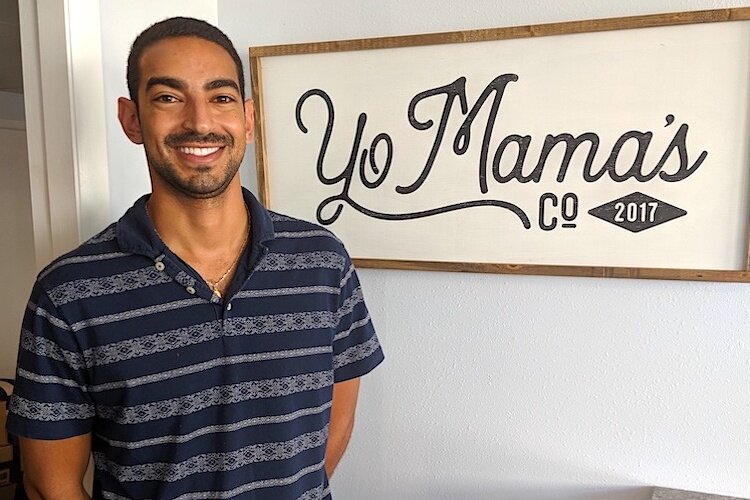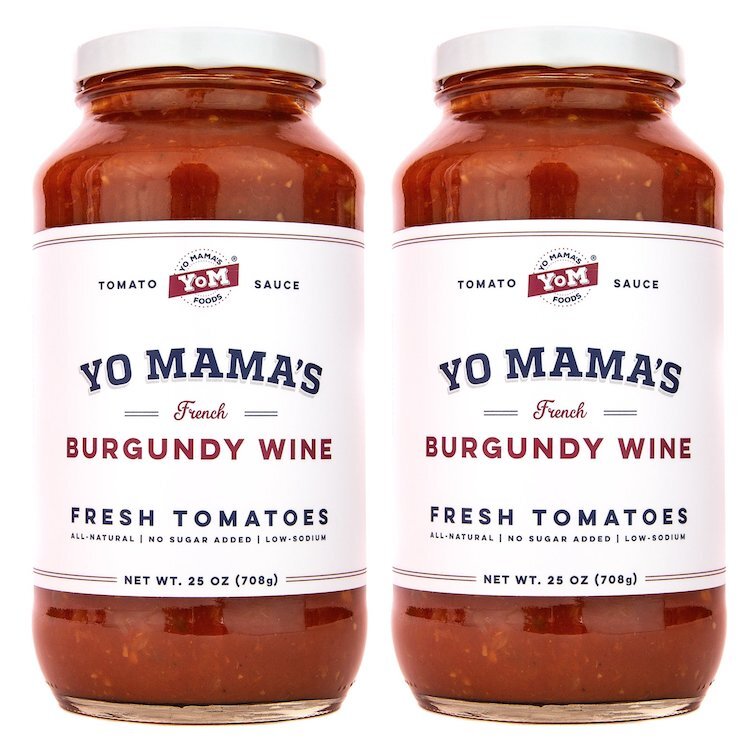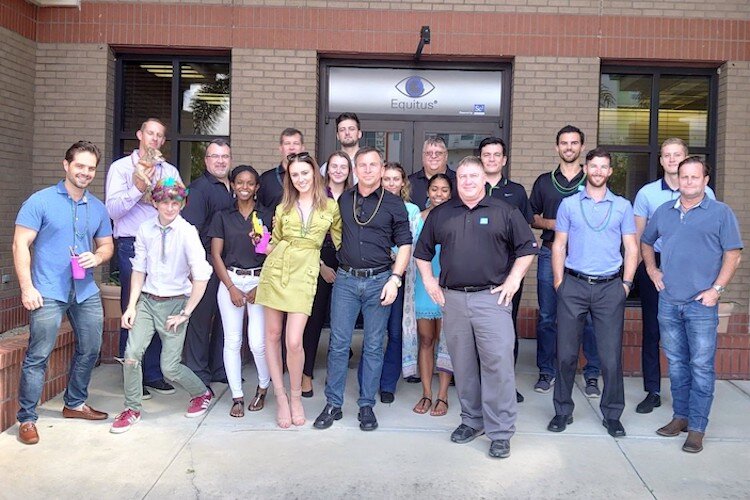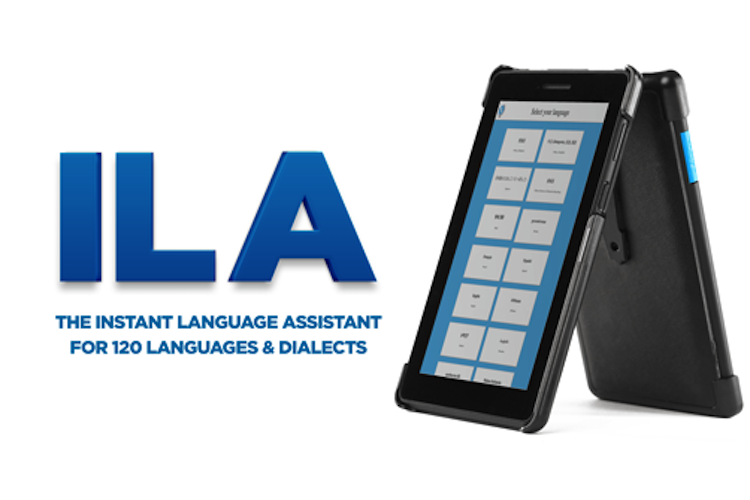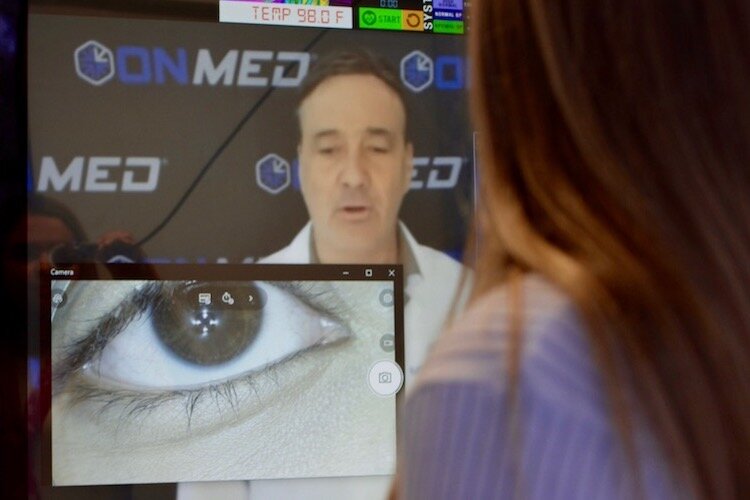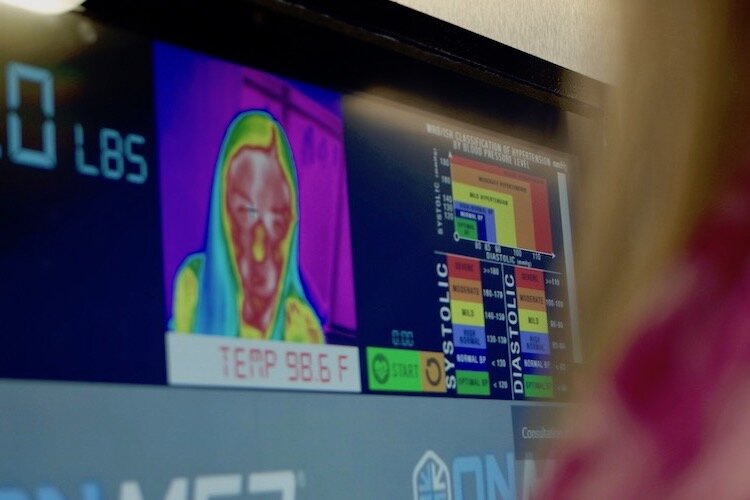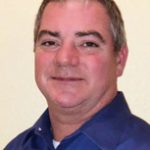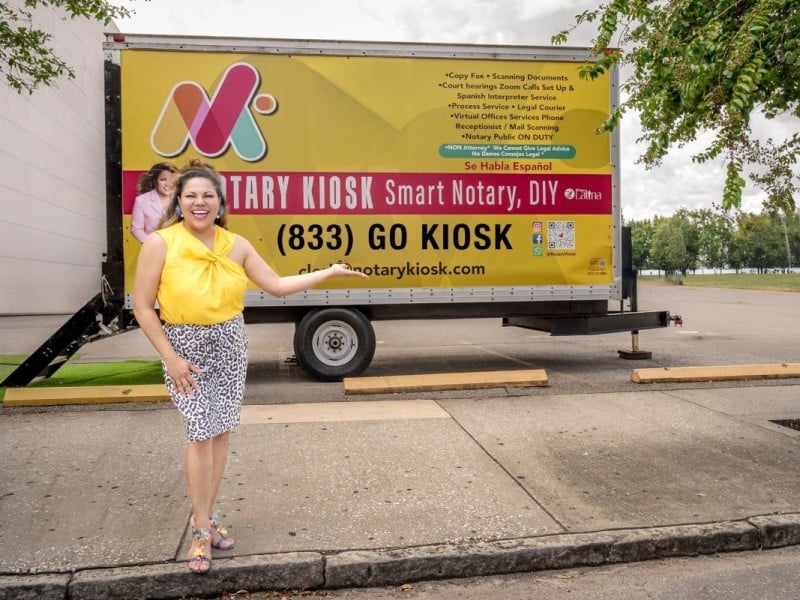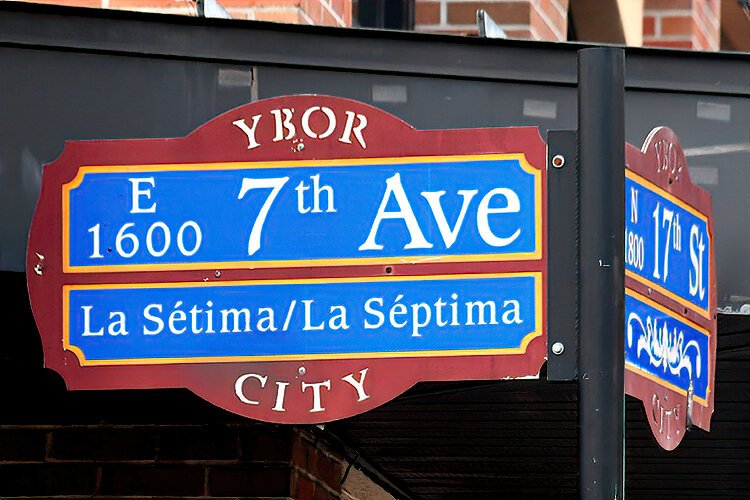Clearwater Business SPARK helps new businesses thrive
Yo Mama's whirlwind success story is just one underway at business incubator Clearwater Business SPARK. At least 3 more tech firms — health care innovator OnMed, AI and machine learning analytics firm Sc2, and communications specialist TranslateLive — are thriving.
On Mother’s Day 2017, David Habib launched a healthy foods company from his parents’ Clearwater home.
Two years later, Yo Mama’s Foods keto pasta sauces, gourmet dressings, and premium oils are on the shelves of retailers like Whole Foods, Sprouts, Target, Lucky’s Market and Earth Fare. The pasta sauce is routinely a top seller for online retail behemoth Amazon.
This whirlwind success story in the making is not the only one of its kind now unfolding in the Clearwater business landscape. Three tech sector firms — health care innovator OnMed, AI and machine learning analytics firm Sc2, and translation and communications specialist TranslateLive — are each thriving and scaling.
Besides their growing success, the companies also share a connection with the City of Clearwater’s Economic Development Department and the Clearwater Business SPARK, a network of organizations that offer resources and support to local entrepreneurs and businesses.
“What we see with all four of these companies are growth opportunities,” says Economic Development Director Denise Sanderson. “They are early-stage to second-stage companies in high growth market areas. We’ll be paying particular attention to these businesses and others like them as they grow so we can provide them the resources they need.”
Returning home to build a business
Habib grew up in Clearwater, attended the University of Florida and, after graduation, moved to Washington D.C. for three years. Then the entrepreneurial spirit struck. He set his sights on starting a company that produces the same type of healthy foods his mother makes. Knowing his money would not go too far in D.C., he returned to Clearwater.
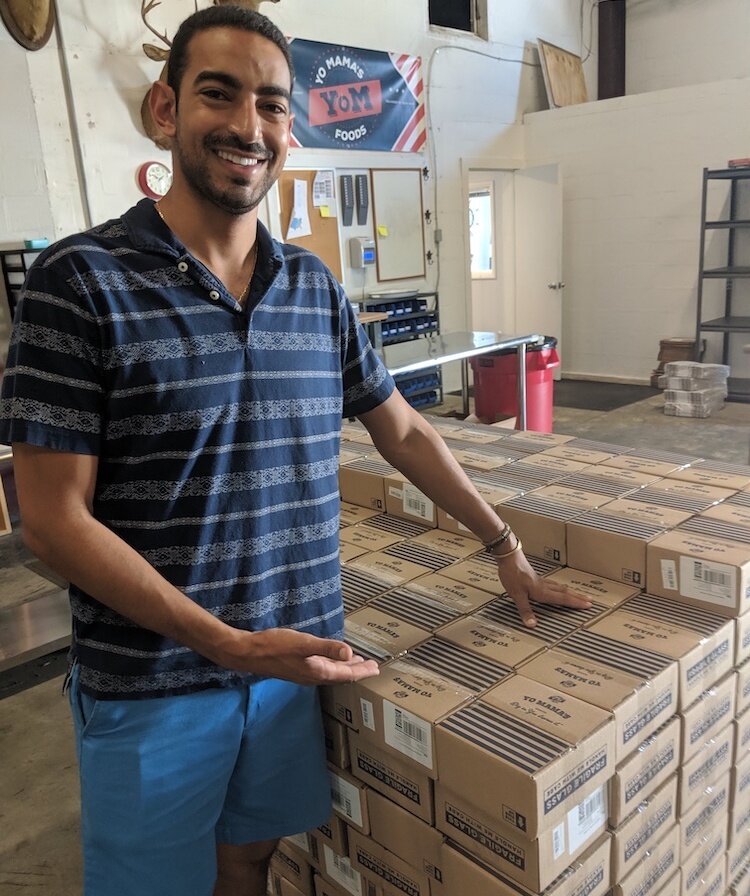
“We started in the dining room of my parents’ house,” Habib recalls. “Then we operated out of a storage unit. It was 300 square feet and didn’t have air or electric. From there, we moved to an old doctor’s office where we operated for almost two years. It was 3,300 square feet. We had to do a little work because it was a clinic that we made into a warehouse. We were hand unloading trucks with a pallet jack because we didn’t have a forklift yet.”
Lucky’s Market in Gainesville was the first grocery store to carry Yo Mama’s. Today, 2,900 stores across the country, including local grocers like St. Petersburg’s Locale Market and Nature’s Food Patch in Clearwater, have Yo Mama’s products on their shelves.
The company has gone from a one-man show to a growing business of three full-time and 12 part-time employees working out of a renovated, formerly run-down and empty warehouse along Eldridge Street in a reawakening industrial area of the North Greenwood neighborhood.
“What we love about this company is it’s a young entrepreneur really trying to do all the right things,” Sanderson says. “He really wants to be part of revitalizing a distressed community. He wanted to locate in an area that needed opportunity. He wanted to move into this community and effect change. Now others are seeing that opportunity.”
Taking a risk and making it pay off
Sc2 formed as a firm of former military special operations officers doing consulting work for the special operations world. Then came an ambitious change of direction and a calculated risk to build and produce private AI and machine learning systems for clients that do not trust the cloud.
“We did consulting for about five years out of Washington D.C. and then we saw an opportunity about five years ago to develop products for a market that didn’t yet exist,” says Chairman and CEO Robert Guidry. “We took a huge change to re-engineer the company. We actually shut down all consulting and went zero revenue for four years. We moved down here because of the low cost. That’s specifically why we moved here. We had to get out of D.C. Our money would not have gone very far there. We had a few million dollars for r and d and we moved to Clearwater.”
The firm originally located in a former law office off of Court Street and Myrtle Avenue, renovating the exterior with the help of grant funding from the City of Clearwater Community Redevelopment Agency.
“That is where we designed our product line,” Guidry says. “What we build is very unusual; it’s certainly unusual for Clearwater. We build private AI systems, meaning they are not touching the cloud. You can buy one and take possession of it and put it in your own premise. It doesn’t need to talk to anyone else. It provides all of the advanced cognitive machine learning and AI functions that you would get with Amazon Cloud, Microsoft Cloud or Google Cloud but in a privatized solution that can operate even when the internet fails To my knowledge we are the only company of our kind in the world right now.”
To date, the military is the leading Sc2 client, using the systems to digest massive amounts of video, files, social media posts, geospatial information, and other data to quickly produce actionable intelligence.
Guidry says Sc2 is also gaining traction in the private sector, particularly with the health care and legal industries. The system is also useful for large companies, including retailers, who want to gauge their reputation on social media and for using voter opinion on social media to predict the outcome of political campaigns. After moving to Clearwater in 2014 and shutting down revenue-making operations to reinvent itself, Sc2 is now doing $15 million in sales on a $25,000 marketing budget.
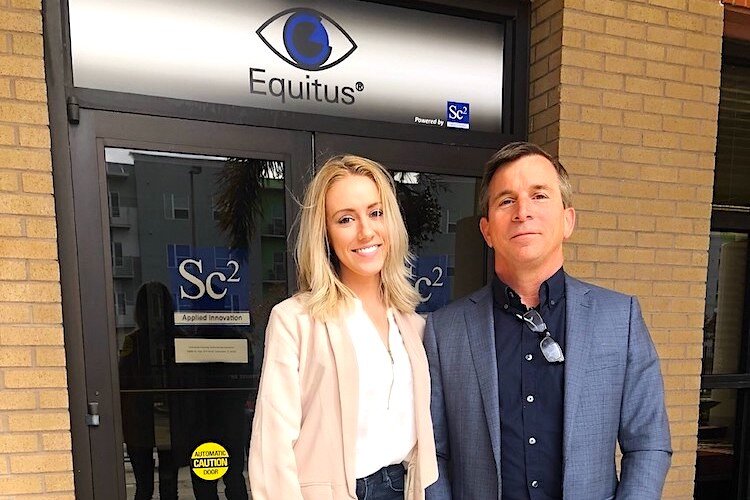
We’ve had a marketing team less than 12 months and I haven’t given them much of a budget yet but they’re doing good things,” Guidry says. “From zero revenue a few years ago, we have $120 million in the sales pipeline right now. Will we close all that, who knows? Will it take two to three years to close some of it? Yeah, it will. And some will fall off and some will add. But those are legitimate who said, ‘yes I want your stuff.’ And now they embark down a process of bureaucracy because they are government agencies. We’ve had some very large commercial firms approach us as well, one massive retailer a massive pharmaceutical company. I’ll have to leave it at that.”
Guidry says the company, which is now in renovated office space off Cleveland Street, is growing strategically and has, to date, held off on taking venture capital investment.
“We have bootstrapped every bit of development,” he says. “We are employee-owned. Every employee with the exception of two who are brand new own shares in this company. So, the employees own this company. We are beholden to no venture capital firms — yet. We have seen incremental growth but we think the market for what we call truly private AI is $15-to-$20 billion a year down the road. It’s actually that right now but we can’t capture it all because we’re not big enough or well-funded enough. But we will be. We have been very careful about taking investment because we don’t want to dilute what we do.”
Innovating communications technology for people with disabilities
TranslateLive CEO Peter Hayes is an industry veteran at building and operating global telecommunications networks. Hayes moved to Clearwater to work with a video relay company that provides telephone access for people who are deaf and hard of hearing through a Federal Communications Commission program that provides live video of an interpreter. From there, he branched out in 2012 to form his own company, VTCSecure, and won a $10 million FCC contract.
In 2017, he launched a second company, TranslateLive, and continued a track record of innovation.
“We were working with IBM Watson and all these speech-to-text APIs (application program interface) to turn speech to text,” Hayes recalls. “We’re experts at it and the value for helping people with disabilities is huge. We started TranslateLive because we thought not only could we turn people’s speech into text instantaneously in real-time but we could also translate it. Basically, it’s software that allows any two people anywhere in the world, without even an app, to instantly enter in a translated conversation in 120 different languages and accents.”
For example, on a phone conversation, one person could enter a code, speak Spanish and the other person on the call would hear it in English.
TranslateLive is now introducing a new innovative product — the Instant Language Assistant (ILA)- that reached the range of six figures in sales in a month.
“It’s exploding,” Hayes says. “People want it all over the place. It’s basically two back-to-back tablets that can be used in any Social Security office, police station, government building, hotel, or business. You walk up, choose a language and accent, and start talking. Everything gets translated. You can bring on a live interpreter if there is a problem. Otherwise, it uses AI at 1/20th cost of a live interpreter.”
The ILA is also equipped to assist the deaf, blind, and hard of hearing, making it a unique device with translation capabilities and features to assist people with disabilities.
While still in the prototype stage, the ILA won an innovation award in September at the M-Enabling Summit in Washington D.C., an annual global conference and showcase of the technological innovations that help seniors and persons with disabilities to access digital content and services in new ways.
Redefining telehealth
The telehealth field has expanded significantly in recent years. Clearwater health technology firm OnMed has taken it to a new level, with a self-contained telemedicine station.
The station uses patented technologies such as thermal imaging and facial recognition to connect patients with doctors, nurses, and pharmacists for remote visits.
The innovation landed OnMed a place on the GrowFL list of 50 Florida Companies to Watch, a group of second-stage companies in the Sunshine State that stand out for employee growth, revenues, and community contributions.
In October, OnMed debuted its telemedicine station at Tampa General Hospital.
“We believe telehealth is the future, but in order to see long-term success, it has to go beyond a phone call with a doctor,” OnMed President and CEO Austin White says in a news release. “This is why we created OnMed — to combine the clinical expertise and diagnostic capabilities of an in-person visit with the convenience and efficiency of a remote visit. Tampa General Hospital has always been a champion for innovation in health care, and we see this as the next step in a combined effort to expand the reach of care.”
For more information, visit Clearwater Business SPARK and City of Clearwater Community Redevelopment Agency.

